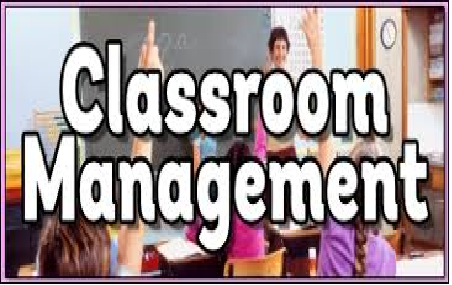
What does “Classroom Management” actually mean?
Classroom management is the most important factor affecting student learning.
It is the effective discipline in the classroom that provides a safe, comfortable learning environment, motivates your students, builds their self-esteem and encourages them to be imaginative and creative in daily lessons.
It is having control of the class by organizing students and resources so that teaching and learning can occur effectively.
Reasons for disruptive behaviour in the classroom
Students misbehave for several reasons:
- They are bored.
- They don’t know the purpose of your presentation.
- They are not aware of the importance of the information that you are delivering.
- Activities are not interesting.
- The pace of the teaching is too fast, or too slow.
Principles of classroom management
- Dealing with disruptive behaviours.
- Minimizing off-task behaviours.
- Engaging as many students as possible in learning activities.
Six General Tips to Manage a Class
1. Over plan your lessons:
If you don’t plan, the student will plan for you.
The more you plan, the more effective the lesson and delivery will be and the fewer problems with discipline will occur.
- Ensure that you fill each minute of the period with learning activities.
- Be prepared and organized well.
- Minimize transition time among tasks.
2. Arrange the seating:
- Rearrange the desks — both for your language lessons and sometimes even for a particular activity so that it is both easier and more natural for students to see and talk to each other.
3. Look at the students:
- If you are standing, and your eyes are constantly moving over the class, everyone feels involved.
- Your eyes help your students’ concentration.
- The easiest way to check whether your students understand what you have said or what they have read or heard is for your eyes to look at theirs.
- Any incomprehension or confusion will show in their eyes long before they tell you that there is a problem.
4. Use your hands to encourage and direct students:
- A simple gesture can indicate who is going to answer a question or which pair of students should now read a dialogue.
- Simple gestures can also indicate that something is wrong.
- Use a collection of gestures to avoid unnecessary language which can distract students.
- Gestures can indicate what is required from individual students, or even from the whole class, with a minimum of fuss.
5. Vary your voice:
- Pauses, stress and changes of voice when you change from comment to instruction and from statement to question will mean that it is much easier for students to follow and pay attention to what you say.
6. Gain attention:
- Gain students’ full attention before giving instructions.
- Provide instruction with simple and clear language.
- Provide one instruction at a time – do not provide too many different instructions.
- Make your lessons relevant and interesting to your students.
- Use examples that interest students.
Thanks For Reading
Liked This Article?
Share It With Your Networks.
You can also join my email list not only to be notified of the latest updates on elttguide.com but also to get TWO of my products: Quick-Start Guide To Teaching Listening In The Classroom & Quick-Start Guide To Teaching Grammar In The Classroom For FREE!












One thought on “Six General Tips To Manage A Class”-
Pingback: “Proven to Work” Tips to Manage Crowded Classes – English Language Teaching & Testing Guide